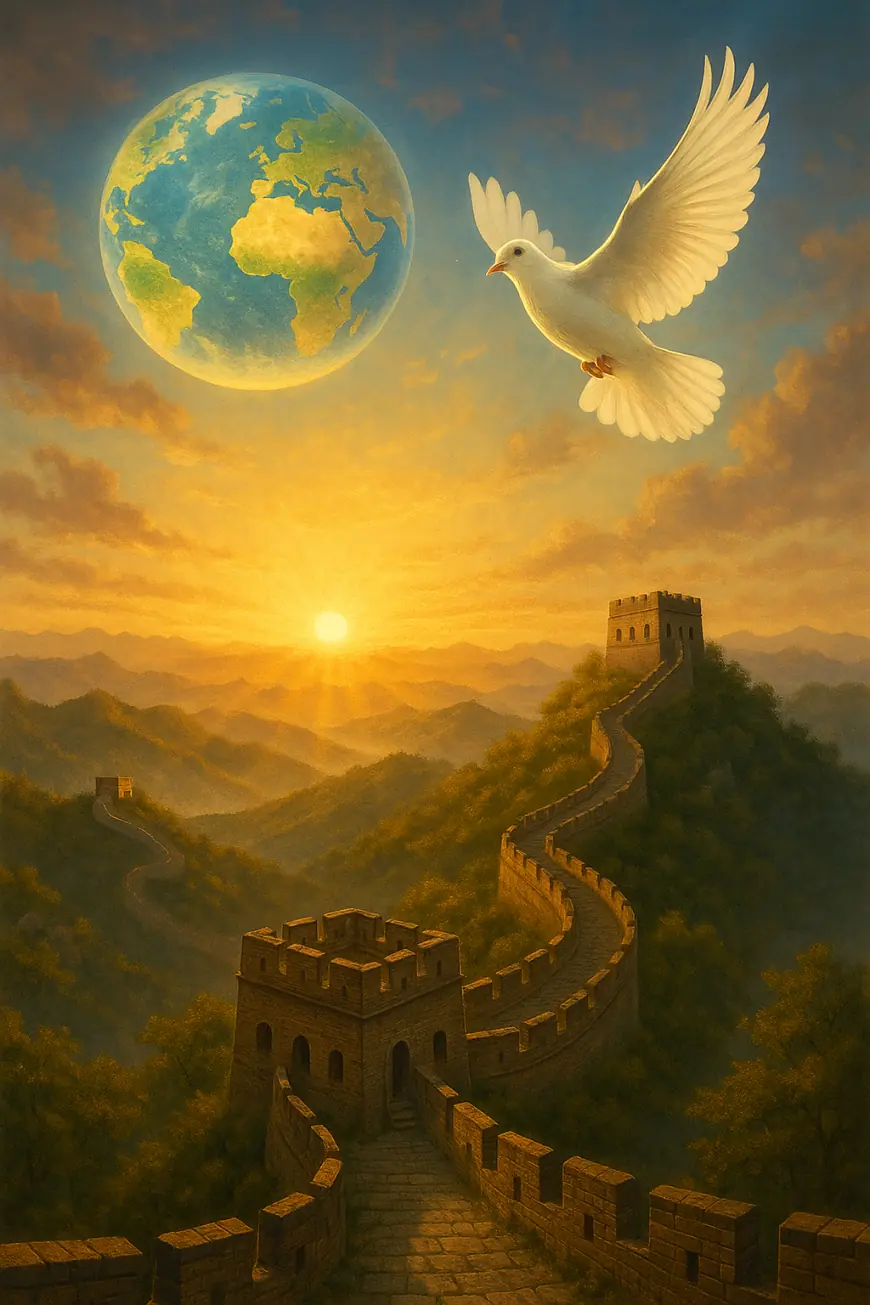US-China Relations A Turning Point in Global Politics
This blog explores US-China relations in the context of the New Cold War and China’s rise. It explains how trade tensions, military buildup, and tech rivalry are increasing global risks. Despite growing mistrust, it stresses that peace is possible through respect, diplomacy, and cooperation between the two powers.

Dee Knight’s Blog shares powerful stories, ideas, and news about peace, justice, and fairness around the world. In this post, we look closely at the complex story of US-China relations, especially in today’s tense climate shaped by the New Cold War and China’s rise.
US-China Relations in the Modern World
US-China relations shape many parts of the world today. From trade to diplomacy, the two powers are deeply connected. But tension is growing again, often called a New Cold War by experts.
Many people worry about what this means for peace. As China’s rise continues, the U.S. feels pressure to hold its global position. This competition impacts not only these two countries but the whole world.
How the New Cold War Shapes US-China Relations
The New Cold War is not like the first Cold War with Russia. It involves more technology, trade, and influence battles. Still, it creates fear and mistrust between nations.
These fears push US-China relations toward conflict rather than cooperation. China’s rise in the tech and military fields adds to this strain. Both nations seem to see each other as threats instead of partners.
China’s Rise and Its Global Impact
China’s rise is one of the biggest shifts in world politics in decades. It has become the second-largest economy after the U.S. and a key power in Asia.
Because of China’s rise, the U.S. has started to change its foreign policy. These changes affect US-China relations directly. Many leaders speak about “competition,” but others still hope for peace and balance.
Trade Tensions in US-China Relations
One major part of US-China relations is trade. The U.S. accuses China of unfair trade practices. China, in return, accuses the U.S. of trying to block its growth.
These arguments have led to tariffs and trade wars. The New Cold War adds more pressure to these disputes. Still, both sides depend on each other economically, making true separation difficult.
Military Growth and the Threat of Conflict
Both the U.S. and China are increasing their military power. This arms race is a dangerous trend in US-China relations. It raises the risk of real conflict.
In the New Cold War, even small moves can cause fear. As China’s rise continues, it also boosts its presence in the South China Sea. The U.S. responds with shows of military force. This creates a risky and tense situation.
Technology Battles and the New Cold War
Another front in US-China relations is technology. The U.S. has placed bans on Chinese companies like Huawei. It says they are national security risks.
China’s rise in tech has shocked U.S. leaders. This has made the New Cold War even stronger. Both sides want to control future industries like AI and 5G. These battles may shape our digital future.
The Human Side of US-China Relations
Often, we forget the people affected by these global tensions. Students, workers, and families feel the pain of broken ties. In this New Cold War, even cultural exchanges have dropped.
As China’s rise speeds up, both governments cut off many friendly programs. This hurts mutual understanding. Peace can only grow if people still talk, learn, and travel freely.
Is There Hope for Peace and Balance?
Some believe that US-China relations can improve. They say that the two nations must work together on issues like climate change and health.
Even during the New Cold War, peace is possible. China’s rise doesn’t have to mean U.S. decline. Both countries can lead in different ways if they respect each other.
What the Future of US-China Relations May Look Like
No one knows for sure what lies ahead. Will the New Cold War grow worse? Or will leaders choose peace?
If we understand China’s rise with care, not fear, we may find a better path. Honest talks and fewer threats may help rebuild US-China relations.
Conclusion: Choose Peace Over Rivalry
In the end, US-China relations reflect the choices of leaders and citizens. We can choose a path of fear and arms. Or we can choose diplomacy, respect, and cooperation.
The New Cold War mindset is not helpful. Understanding China’s rise as a chance—not a threat—may lead to peace. Let us push for leaders who build bridges, not walls.
What's Your Reaction?
 Like
0
Like
0
 Dislike
0
Dislike
0
 Love
0
Love
0
 Funny
0
Funny
0
 Angry
0
Angry
0
 Sad
0
Sad
0
 Wow
0
Wow
0
















































